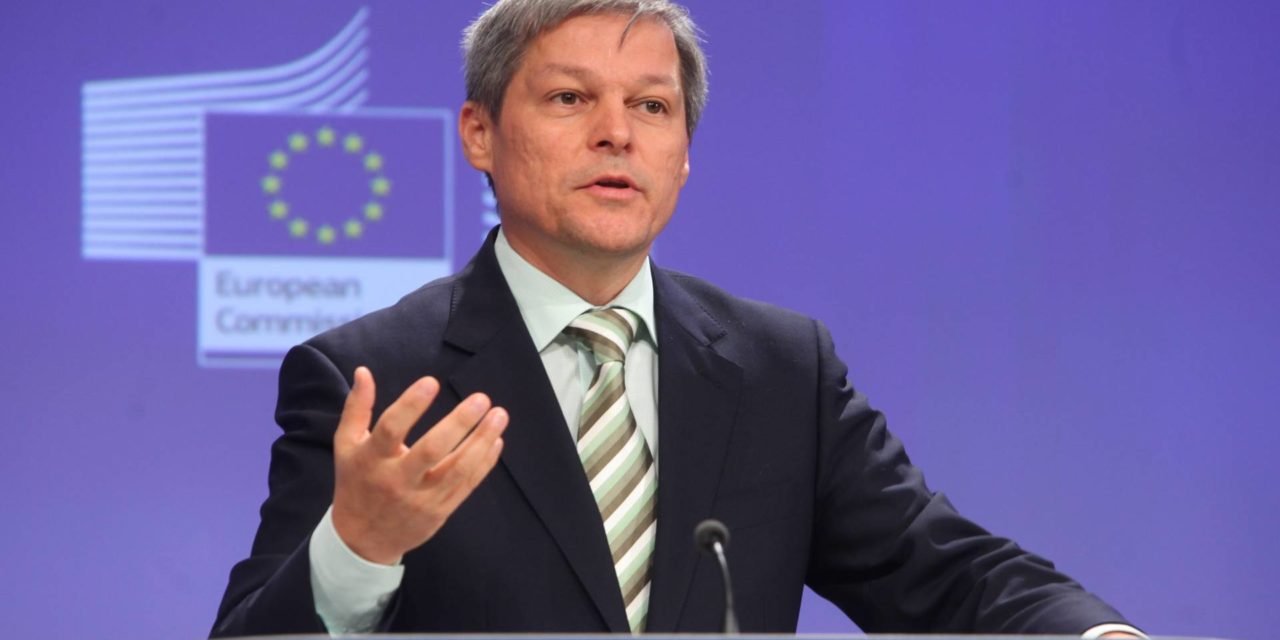It seems that the good Dacian Cioloș, the leader of the Renew Europe faction of the European Parliament, which brings together liberal and ultra-liberal parties, is already fully engaged in the campaign for the Hungarian elections due in April of next year: in the spirit of the tolerance and democratic way of thinking so characteristic of liberals, he announced a crusade against against the democratically elected, conservative Hungarian government.
Cioloș, who is the co-chairman of the USR-PLUS ruling in coalition with the RMDSZ in Bucharest, as the leader of the named faction - of course with the support of the member parties, including Hungary's Momentum - addressed a letter to Ursula von der Leyen, the President of the European Commission (EC), last week, in which he requested that until the Hungarian government fulfills some of the conditions set by his faction, the EC should not approve the reconstruction plan intended to be implemented with seven billion euros of EU support aimed at recovering from the economic crisis caused by the coronavirus.
And this week he triumphantly trumpeted to the world that the European Court of Justice accepted the proposal advocated by other far-left factions of the EP in addition to his own - although a member of the Brussels body immediately refuted this. Cioloș, using the beech language adopted by "progressive" circles, referred to "systemic" corruption in Hungary and asked for a decision harmful to Hungary and Hungarian citizens. Which, let's face it, is a rather wild reason on the part of a Romanian politician, since corruption could even be declared a form of government in Romania. However, don't worry, everyone: corruption accusations are just an excuse.
Cioloș has actually embarked on a political, ideologically based campaign, which has only one goal: to intervene from the outside to weaken the conservative Hungarian government represented by a significant part of the parties of the EP and the EC, which is often opposed to extreme liberal ideologies, so that the parliamentary elections due next year before this, try to provide help to the opposition coalition from the extreme liberal Momentum to the Gyurcsány party, which constantly incites against Hungarians across the border, to Jobbik, which is now considered not so extreme right. (Let's just say they also consider Transylvanian Hungarians to be bought for glass beads! - ed.)
The goal is clear: if, under any pretext, it is possible to achieve that Hungary does not receive the EU funds it deserves, or only late, or under conditions that were not included in the originally laid down rules, that were made up after the fact, it would, according to their hope, cause a significant loss of prestige to the Orbán government. By the way, the definition of corruption in this line-up is very simple: if a country has a right-wing government in power that is not left-wing or liberal in today's sense, or perhaps playing to the ideological and rhetorical score of left-liberals, then there is systemic corruption and a dictatorship that suppresses freedom of the press.
If, on the other hand, friendly and comradely parties govern, which uncritically accept all the saneness that they want to impose on them, then progressive Canaan is rampant. By the way, the effort with which he is leading the campaign against Hungary is truly remarkable on Cioloș's part. We can even believe that he is driven by deep liberal convictions and that, as a former EU Commissioner for Agriculture, he has become ideologically a loyal soldier of the Eurocracy in Brussels. Looking at the early stage of his career, however, we can even suspect neophyte zeal, as he was still quite far from liberal ideals when he was a young university student:
he was one of the leaders of the extreme, Hungarian-hating Vatra Românească youth organization, and although he denies it, according to some documents, he also held a leading position in the youth organization of the Hungarian-hating Romanian National Unity Party (PUNR).
Whether he was the leader of the Funarjugend or not, based on all of this, it is difficult to dismiss the idea that - today's liberal creed here, libertarian tolerance there - one of the driving forces behind the attack on Hungary is that, as a Romanian politician, he does not feel comfortable being a right-winger in Budapest,
There is a government in power that works to strengthen Hungary's geopolitical role and strongly supports the Hungarian national regions beyond the border.
Based on all of this, the only thing that is missing is that he offers comradely assistance to the EU bodies that are now again putting Hungary on the hook against the "fascist" Hungarian government, as was the case with the leaders in Bucharest at the time, when the 1956 revolution was crushed. It is true, even without it, it can be considered a worthy successor.
Source and image: kronikaonline.ro













